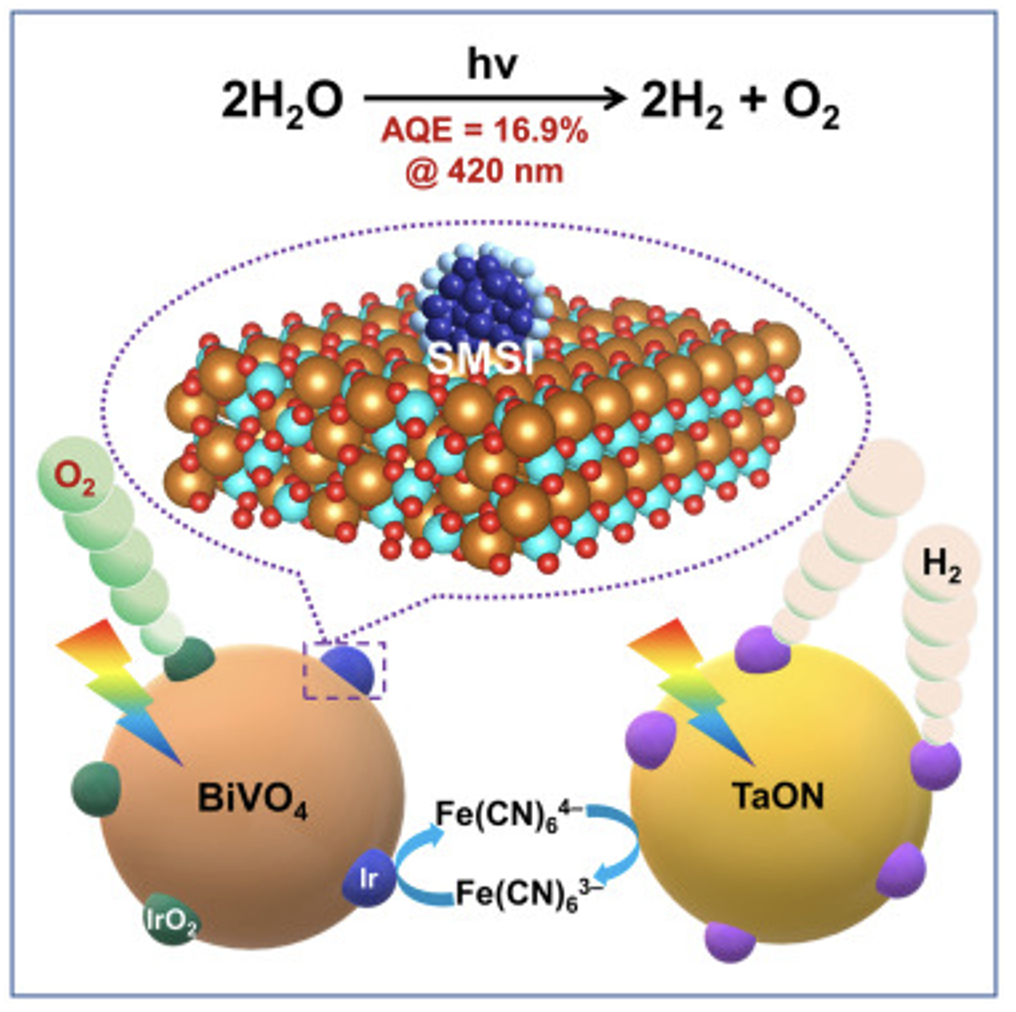https://www.cas.cn/cm/202401/t20240118_5000870.shtml
https://doi.org/10.1016/j.joule.2023.12.005
Hydrogen production by total decomposition of water using suspended powder photocatalysts, although considered as one of the cheapest and easiest solar photochemical conversion pathways to be scaled up, has been constrained by the low efficiency of photogenerated charge separation. Zhang Fuxiang’s team at the CAS Dalian Institute of Chemical Physics now reports on new progress in the study of hydrogen production from fully decomposed water with broad-spectrum trapping photocatalysts. They found that the strong interaction of metal carriers can significantly promote the interfacial charge separation and water oxidation performance of the Ir/BiVO4 photocatalyst system, and thus established a highly efficient “Z” mechanism of total decomposition of water for hydrogen production, with an apparent quantum efficiency of 16.9% for hydrogen production at room temperature.

